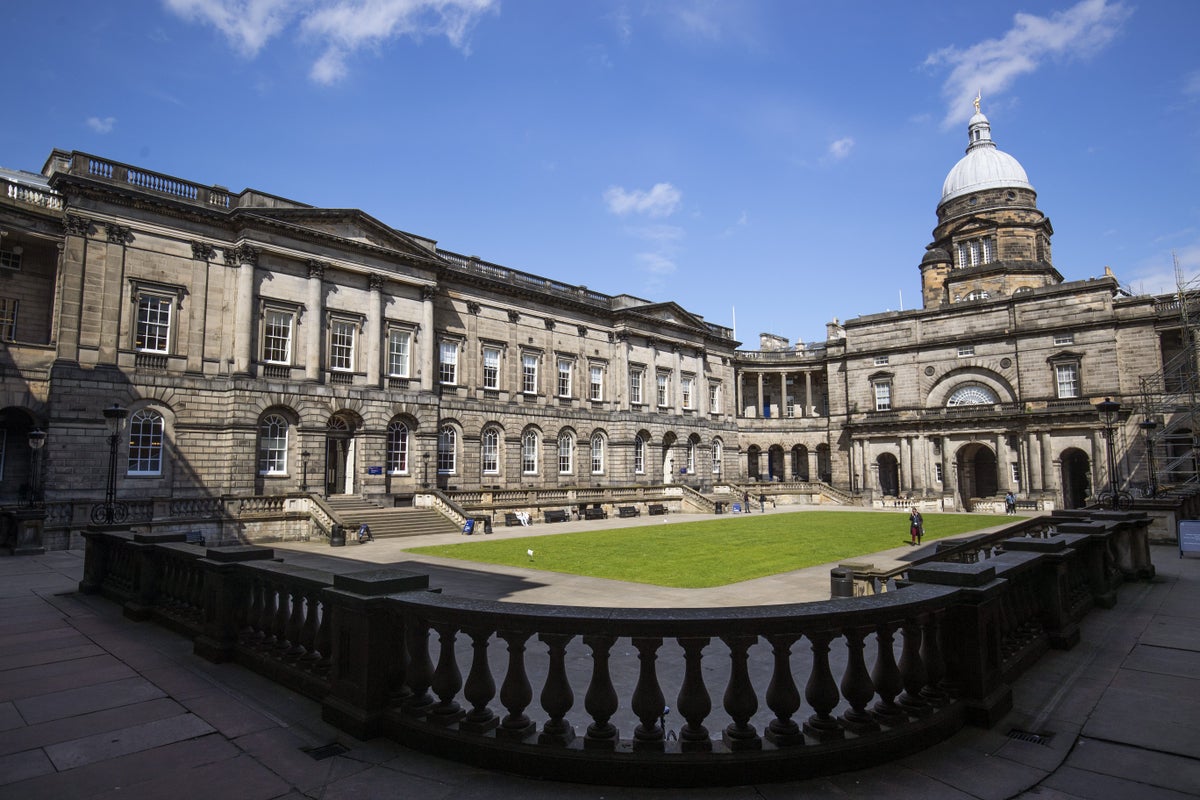
The University of Edinburgh has published a review into historic links to slavery and colonialism following four years of research, and issued an apology.
Principal and vice chancellor, Professor Sir Peter Mathieson, issued a formal statement following the University of Edinburgh’s Race Review and pledged to “learn and move forward” from the report, which was commissioned in 2021.
Nearly 50 recommendations were made following a subsequent policy report and the work was overseen by Scotland’s first black professor, Professor Sir Geoff Palmer, who had seen a draft of the review and contributed to feedback before he died in June.
The report, Decolonised Transformations: Confronting the University of Edinburgh’s History and Legacies of Enslavement and Colonialism, has been published online, amid a public pledge to address racial discrimination and inequality.
Archival research examined how the “legacies of wealth” amassed from slavery and colonialism in the 17th and 18th centuries can be traced to contemporary endowments and capital campaigns, and how leading thinkers of the Scottish Enlightenment, who were also prominent University figures in the 18th Century, promoted theories of racial inferiority and white supremacism used to justify colonialism.
Last year, the University funded further research into its historical links with Arthur Balfour, who played a key role in the creation of Israel and was a former Chancellor of the university as well as Prime Minister and Conservative politician.
Sir Peter said: “Only by fully engaging with and understanding the entirety of our institutional past can we truly learn and move forward. We are unwavering in our commitment to a future where racism, racial discrimination, and racialised inequalities have no place in higher education or society.
“We cannot have a selective memory about our past, focusing only on the historical achievements which make us feel proud.”
He paid tribute to Sir Geoff Palmour and said the work would “honour his memory through our ongoing commitment to advancing race equality within our institution and in society more broadly” amid data showing under-representation of racially and ethnically minoritised staff and students, disparities in degree awarding and challenges in seeking support for racism.
Among recommendations in the report was the creation of a Naming Approval Committee to manage requests for naming or renaming University buildings in a bid to consider how it acknowledges its historic links to racism and colonialism on campus.
A response group identified actions as part of “reparative justice”, including continued research into racial injustice, strengthening connections with minoritised communities, boosting scholarships, as well as reinforcing anti-racist educational programmes, after the findings.
The university pledged to achieve “meaningful change” and transparency, and to “learn from and repair its past”.
Professor Tommy Curry, co-chairman of the Race Review’s research and engagement working group, said: “This review demonstrates a level of self-reflection that very few institutions have had the courage to embark on.
“We have fundamentally changed what we understood as the Scottish Enlightenment. We have shown that the study of racial difference had a major home here, and that there are legacies of discrimination that we still have to correct today.
“We hope our findings will enable the University to emerge as a better version of itself. This sets a standard for other institutions to not only reconsider their historical perspectives and legacies, but also their institutional culture.”
Dr Nicola Frith, co-chairwoman of the Race Review’s research and engagement working group, said: “We’ve placed a huge amount of effort into joining the dots between the past and present to uncover the impact on our students, staff and community from racially and ethnically minoritised communities.
“Now it can be in the business of producing decolonised and reparatory forms of knowledge that genuinely embrace and include those communities it has harmed in the way that it thinks, acts and is structured.”
Fiona McClement, co-leader of the Race Review response group, said: “The University exists to produce and disseminate knowledge for the betterment of society.
“Now we need to look at what this means for our future, and how we can move forward within a framework of reparative justice principles.
“Our aspiration is to be an anti-racist organisation. We want to ensure that are a welcoming and nurturing environment in which all members of our community feel a sense of belonging, and can flourish and succeed without facing unjust racialised barriers”
Chris Cox, vice principal of philanthropy and advancement at the University of Edinburgh and chairman of the Race Review’s policy report, said: “Universities are all about opening up difficult conversations such as those raised by our Race Review.
“Our response isn’t based on closing down these discussions, but on beginning new and important ones.
“In addressing our legacy, we have the chance to plan for a better future and celebrate the full diversity of our community.”
